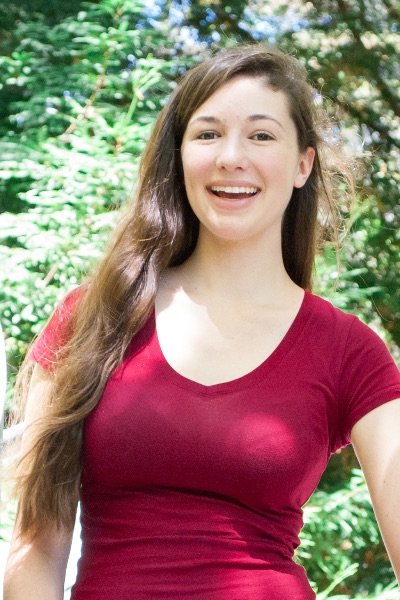Campus News
Campus strengthens bridges to high school students via summer session offerings
Local high school students took courses, helped with research, worked campus jobs, and even lived on campus this past summer.

More than five dozen academically advanced local high school students headed back to school this fall with new college credits thanks to an expanding UC Santa Cruz Summer Session that is focusing new outreach efforts on local schools.
“They deserve to be up here and taking advantage of this place,” said Monica Parikh, who, as director of the summer session program, has been helping to strengthen regional contacts and welcome pre-college students. “Inviting high school students to experience college-level courses and campus culture has been a high priority of mine.”
The Summer Session includes two five-week intensive terms that provide transferable credits for students seeking a leg up in their academic journey.
Santa Cruz High School senior Matthew Phillips, 17, who signed up for a beginning Japanese language summer session course before his junior year, liked it so much that he returned this last summer for Literature 61F, a study of the graphic novel.
“It was kind of a good deal for me to take the class,” he said, noting that the class not only counts towards his graduation as an advanced placement English course, gives him college experience and lightens his course load for his senior year, but it provided a summer job on campus at an IT help desk in a campus library.
Phillips warns prospective high school students, however, that despite fewer class hours and greater independence, college is “way harder” than high school. He’s had to learn a new style of writing. “It’s a lot more based on understanding the material rather than just being able to name off random facts about the books,” he said.
For Pacific Collegiate School junior Ruby Rorty, 16, summer included an intense five-week anthropology course on global environmental change, a study of capitalism, industrialization, environmental politics and global culture, not the usual high school material.
Rorty, like any serious high school student, says she loves the words “college credit,” but it’s not the only reason she signed up. The course gave her the opportunity to practice being a college student and, more importantly, she said, “it addressed so many of the issues my generation will face as we seek to remedy and prevent environmental damage—issues I hope to spend the rest of my life trying to solve.”
Although, one of the most rigorous classes she’s ever taken, it was not as scary as she thought it would be.
“It required me to think harder about the world around me than just about any other course I’ve taken,” she said.
Rorty was also able to work on campus as an intern in one of the biology labs studying the bacteria of fruit flies. Older classmates talked to her about the college application process and shared their early college experiences.
About 90 percent of the 3,800 students enrolled in 280 summer session courses was made up of UC Santa Cdruz undergraduate students. The other 10 percent was visitors from other campuses and high schools. High school enrollment has more than tripled in the past three years.
Courses this past summer ranged from introductory classes in astronomy, computer science, calculus, psychology and acting, to more unique offerings such as the geology of national parks, holocaust studies, and 3D printing, as well as special programs focusing on the works of Dickens or developing renewable energy.
About half of the high school students live on campus. Others commute from home or take online courses. High school students pay $136 per unit, a 50 percent discount. Once enrolled as a UC Santa Cruz student, high school students are invited to enjoy the perks that go along with a student ID, such as access to the gym, campus tutoring, the UC library system, and a student bus pass. They can pick strawberries at the farm and hold part-time jobs on campus.
“For many of them it’s a sudden and exciting thrust into adulthood,” Parikh said. “To think of this place being a resource for them is exhilarating.”